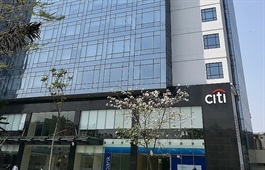Financial markets leaning towards cryptocurrency
Financial markets leaning towards cryptocurrency
The global financial markets are seeing a growing trend that is leaning towards cryptocurrency. This will undoubtedly mark an important milestone in the history of international payment methodology, especially when major financial institutions begin to accept this form of currency.
Illustrative photo.
|
Although, cryptocurrency may not become an official medium of exchange in the near future due to several risk factors and high volatility, the trend cannot be ignored.
Gaining popularity
Cryptocurrency, also known as digital currency, is gaining in popularity, as evidenced by the price of bitcoin in March at five times its price value since last year. The price exceeded USD 61,000 per bitcoin, raising market cap to over USD 1,000 bn. The explosion of bitcoin was caused by several reasons, one of which has been the participation of several well-known institutional investors like Stan Druckenmiller, Paul Tudor Jones and Elon Musk, with Tesla Inc. pouring USD 1.5 bn into this particular market since the beginning of the year.
Besides bitcoin, there are now more than 5,000 kinds of other cryptocurrencies in circulation. Crypto.com statistics show that there are around 106 million cryptocurrency users around the globe in January 2021, increasing by 15% over last year. With cryptocurrencies worth thousands of billion of US dollars, the global financial markets have recently shown a strong inclination for its use in investments, fundraising and payments.
The pioneers of cryptocurrencies, like bitcoin and litecoin, are designed to be used as a mode of payment and exchange in place of cash. Over the past decade, these cryptocurrencies have emerged as new investment channels, and increasing in value day by day. This market has attracted more and more attention from individuals, and institutional as well as professional investors.
In early February, JPMorgan Chase & Co. advised investors to use cryptocurrency as an asset to diversify investment portfolios and prevent risks caused by volatility in traditional investment channels. The New York based company estimates that around USD 7 bn has gone into bitcoin investment funds, while more than USD 20 bn has been blown out of precious metal Exchange Traded Funds (ETFs).
The Goldman Sachs Group Inc. and Morgan Stanley have announced their intention to provide means for investing in bitcoin and other digital currencies for their high-profile clients. However, many hold doubts about the value of cryptocurrencies because of skyrocketing prices of this form of currency. Some economists believe that cryptocurrency is symbolic of a property bubble and its value only comes from hyped speculation.
Banks in league
An Initial Coin Offering (ICO) is becoming more and more common among startups in an effort to gradually replace the traditional financial system. ICO can be understood as an initial cryptocurrency public offering for investments. It is a form of crowdfunding and blockchain technology. With its advantage of a decentralized and non-intermediary medium, blockchain technology makes it possible for direct transactions without any intermediaries, thereby reducing the cost of fundraising. Besides this, the cryptocurrency market can improve liquidity and enable investors to withdraw their capital at any time.
A 2018 study by Dirk A. Zetzsche and Associates shows that ICOs have become a global phenomenon, with a total amount of registered investments exceeding USD 75 bn in June 2018. More recently, banks have started to pour investments into ICOs, which is very likely to make it a new form of fundraising to replace traditional ways. In payment activities, it is obvious that more and more individuals and institutions are willing to accept cryptocurrency as a mode of payment. Coinmap.org statistics indicates that 22,094 locations around the world will accept cryptocurrency payments by April 2021. Telsa has drawn the most attention, after it notified its customers in the US market that they could buy Telsa cars and pay by bitcoin. Global payment service providers like MasterCard, VISA, PayPal have also accepted crypto money as a currency.
Cryptocurrency has attracted a large number of investors, and considerable amounts of different currencies have flowed out of countries into this busy market. This trend may be now impossible to reverse. Actual reality in some countries shows that government bans or warnings are not enough to stop investors engaging in this lucrative market. Nevertheless, the growth of cryptocurrencies will pose huge challenges to countries, especially in the possible danger of it replacing fiat money under control of Central Banks. The advantages of cryptocurrency could also lead to new forms of Central Bank digital currency (CBDC).
A 2020 survey conducted by the Bank for International Settlements (BIS), with participants from 66 Central Banks across the globe, shows that more and more Central Banks are interested in the issuance of CBDC. Roughly 80% of Central Banks have already begun to do so, and approximately 40% have moved forward from a stage of studying to experimenting, while more or less 10% of Central Banks are at experimental stage. This indicates that the next currency revolution is quietly underway, which will now have far-reaching implications for Vietnam's monetary policy in the long run.
























